Starting an NGO in 2025 has become an influential way to address social environmental, and humanitarian challenges in India. With increasing community awareness, government interest, digital transparency, and society. Whether the focus is education, women’s empowerment, healthcare, climate change, rural development, child welfare, or disability support, well structured NGOs are creating measurable nationwide impact.
This growth is supported by a robust legal framework and government initiatives encouraging social entrepreneurship. Prospective founders can navigate the registration process, typically choosing between a Trust, a society, or a Section 8 Company. Digital tools lower operational barriers, helping new NGOs reach wider audience and manage resources from the outset.
Many aspiring social contributors are confused about the legal process and documentation for starting an NGO. Correctly establishing a registered NGO is vital as it provides credibility, allowing it to receive grants, accept legal donations, and collaborate with global organizations. This guide details the essential requirements, documents, and a 7-step process to register and launch an impactful NGO in India in 2025.
Table of Contents
What is an NGO?
An NGO is an organisation in which the government has no role; It is a Non-governmental organisation. People who have good money or business help people through NGOs. NGOs are a subgroup of organisations established by citizens, including clubs and associations that provide services to their members and others—an organisation aimed at the welfare of society. NGOs do social work, such as housing widowed women, teaching poor orphans, protecting women, etc.
NGOs were formed in the US because in the US, aside from the govt., various social works are done by these organizations. NGO’s can be run by anyone; one person cannot run; it is run by a group of 7 or more people.
It is not run for profit but for the good of others. Individuals who are passionate about bringing a change in the society can do so through a registered or unregistered NGO. But one benefit of registered NGOs is that you can get financial support from the government for social welfare. If a person wants to do social work or social welfare without the government’s help, he can also work by contacting private companies.
Types of NGOs
We have a lot of questions in our mind about NGOs, such as how many types of NGOs are there and their orientation and level of operation may classify it. So, we provide complete knowledge about types of NGOs.
| Type | Description |
|---|---|
| Society | Works for social development through welfare activities and awareness programmes; registered under the Societies Registration Act, 1860. |
| Trust | Operates for charitable or religious purposes; managed by trustees and governed under the Indian Trusts Act, 1882. |
| Section 8 Company | Non-profit company formed for social objectives; regulated under the Companies Act, 2013 with high compliance and credibility. |
| Community-Based Organization (CBO) | Local organizations operating in villages or slums to solve community-focused needs like sanitation, health and education. |
| Voluntary Organization (VO) | Group of volunteers working for welfare activities like blood donation, disaster relief and youth social responsibility. |
Before beginning an NGO, you should know the primary difficulties of people in the area you want to reduce. Knowing this, it becomes easier to formulate the purpose and mission of your NGO accordingly. After this, you must decide the NGO’s vision, mission, and objectives.
Read also: Know the NGOFeed’s updated ranking of Top NGOs in India here.
Requirements Before Starting an NGO in India
- Minimum Members : Society -7 members, Trust – 2 trustees, Section 8 Company – 2 directors.
- Eligibility : Any Indian citizen above 18 years with a clear social objective; minors cannot register an NGO.
- Documents of Members : Aadhaar, PAN, passport-size photos, residential proof, contact details.
- Owner of the premises & affidavit from the President on Rs.10/- Stamp Paper and all the members of society must sign the list of Desirous persons.
- Ownership Proof of Registered Office. (Electricity Bill/Sale Deed/ GPA/Water Bill etc.) and residential Proof/office address of all members of society, for example, Telephone bill/Voter ID/Electricity bill/ Driving license/Passport, etc.
- Capital Requirements : No minimum capital, but initial operational budget recommended for legal and project expenses.
- Name Availability Check : NGO name must be unique, non profit oriented and not violate trademarks.
- Mission / Vision Statement : Clear objectives describing scope of NGO work and target beneficiaries.
- Bylaws / Trust Deed / MoA : Legal constitution documents describing rules, responsibilities and working structure. Memorandum and Rules & Regulations in Duplicate duly signed by a Minimum of Three persons (Each page on the bottom).
- Desirous persons or persons subscribing to the name of the Memorandum should not be (in any case) less than seven. If it is meant to provide All India character to the society, there must be 8 separate persons from various states of the Indian Union to the Memorandum.
How to Start an NGO?
Starting an NGO requires a passion to make a difference in the society and lives of people around and a dedication to work selflessly towards the betterment of humankind. Anyone wants to start their NGO has to follow a process which is explained in detail below.
Step by step guide to start an NGO in India
Here, we provide information about How to start an NGO in India; follow these easy steps to start an NGO. Let’s see:
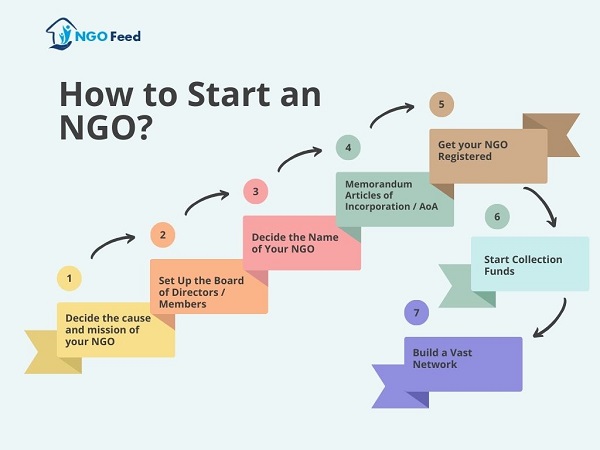
Step 1. Cause and mission of your NGO:
The first and foremost step in starting an NGO is to decide on the cause and mission of your organization. First, understand which cause in society bothers you the most and to which cause you want to dedicate your time and efforts to bring about a positive change. This is a very important step because it will be the foundation of your organization, keeping you motivated. Your cause and mission will always remind you of the reason you started.
Step 2. Board of directors:
The foundation of any organization is always it’s people and to start your NGO you need the right set of people who can help you run your NGO smoothly. In your board you have to find people who are equally passionate for the cause and willing to provide their support. Your Board should have people from diverse backgrounds like financial specialists, technology specially and people who have diverse knowledge about fundraising.
Step 3. Name of your NGO:
Here comes the time to be the most creative and give a name to your NGO that tells a story about your organization and what it does, this decision takes the most amount of time because you want the best name for your NGO.
For Reference: From just reading the name Smile Foundation we can understand what this organization focus on that is spreading smiles among people and the society.
Step 4. Memorandum and Articles of Incorporation (MOA/AOA)
When you start an NGO, it is crucial to prepare both these documents memorandum of Association (MOA) and Articles of association (AOA)
MOA includes name, address, mission and information regarding founding members of your NGO etc.
AOA includes roles and responsibilities of board of directors, eligibility criteria to become a member, process of financial reporting etc.
Step 5. Get your NGO registered:
In order to register your NGO there are several steps that you have to follow such as submitting the necessary documents (such as MOA, AOA, identity proofs of members, and address proof) to the relevant government authority responsible for NGO registration in your country or region. Also your have to apply for tax-exempt status if your country provides tax benefits for charitable organizations and most importantly open a bank account in the name of your NGO.
Step 6: Fund Collection
To start your operational fund collection is the most critical part for any NGO. There are several ways of fund collection such as individual donations through direct appeals, fundraising events, social media campaigns, government grants etc.
Step 7: Final Process
To build a strong network is extremely crucial for any NGO as it assists organizations in funding opportunities, technical support, research and innovation and if you have credible people in your network, it increases the credibility of your NGO.
NGO Darpan
NGO Darpan is an official online portal created by NITI Aayog and the Government of India to maintain a verified national database of NGOs and voluntary organizations.
It helps NGOs get:
- Government recognition
- Eligibility for government grants
- Faster communication with ministries
- Transparency and public trust
- A unique NGO Darpan ID
Almost all registered NGOs in India must register on NGO Darpan for credibility and for applying to central government schemes.
Read also : How to register an NGO under NITI Aayog
Register into NGO Darpan? (Step-by-Step)
Follow these steps to register your NGO on NGO Darpan:
Step 1: Visit the Portal
Go to the official site and click “Sign Up” to create an account using email and mobile number.
Step 2: Enter Organization Details
Fill in basic details like NGO name, type (Society/Trust/Section 8), registration number, date and address.
Step 3: Upload Documents
Upload required documents:
- Registration Certificate
- PAN of the NGO
- Aadhaar/PAN of office-bearers
- Trust Deed / Bylaws / MoA if asked
Step 4: Add Key Members
Enter names and details of President/Chairman, Secretary and Treasurer.
Step 5: Enter Activities
Add social work activities your NGO does or plans to do for transparency.
Step 6: Verify Email and Mobile
Complete OTP verification for login access.
Step 7: Submit and Receive Darpan ID
Once approved, you receive a Unique NGO Darpan ID, required for government schemes and grants.
Top NGO in India
Non-governmental organizations worldwide work for various social and human welfare, working towards constant development and positive societal changes. It performs many functions; its primary purpose is to work on social causes. It educates poor orphans, provides books to children, provides good food for children in school, etc.
1. CRY (Child Rights and You)
2. Smile Foundation
3. Give India Foundation
To read the complete list, follow the link: Top 10 NGOs in India.
Read also:
| Section 8 Company Registration | Charitable Trust Registration Process |
| FCRA Registration | 12A and 80G Registration for NGO |
| CSR Registration | Society Registration Process |
| NGO Darpan Registration | – |
Frequently Asked Questions (FAQs)
1. What is an NGO?
An NGO (Non-Governmental Organization) is a non-profit group formed by people to work for social development, community welfare, environmental protection, education, health, women empowerment or any public cause. NGOs do not work for profit; instead, they use donations, grants and volunteer support to solve social problems. They operate independently from government but can collaborate with government and private bodies for welfare projects.
2. What is NGO Darpan?
NGO Darpan is an official online portal created by NITI Aayog and the Government of India to maintain a verified national database of NGOs and voluntary organizations.
3. Is registration compulsory to start an NGO?
No, social work can begin without registration, but a registered NGO is required to accept donations, grants and CSR funds legally.
4.Do NGOs pay tax?
NGOs can apply for 80G and 12A certificates to get income tax exemption and provide tax benefits to donors.
5. Can a single person start an NGO?
No, at least two members are required for a Trust, seven for a Society and two directors for a Section 8 Company.

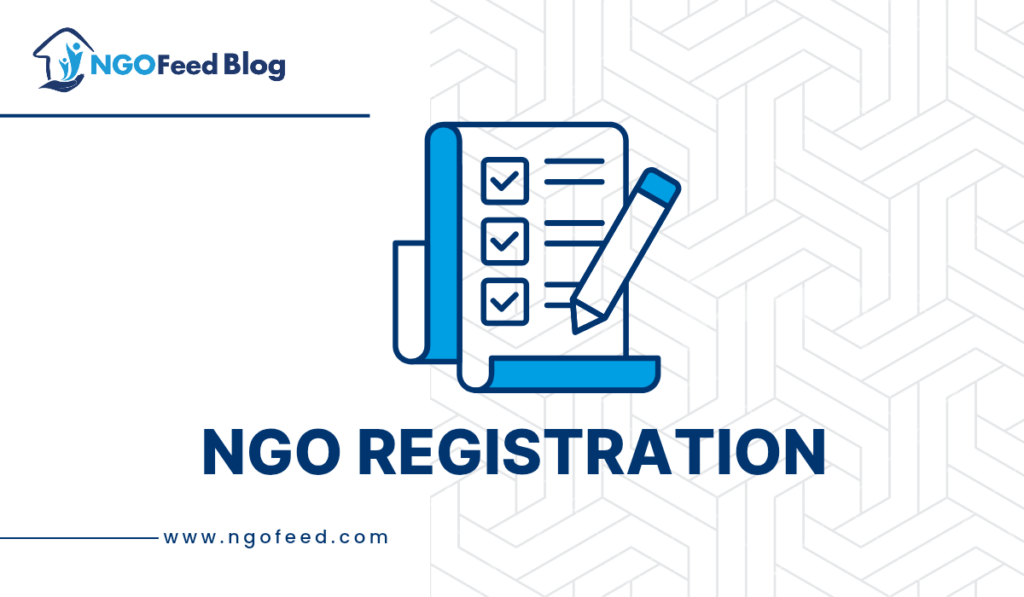
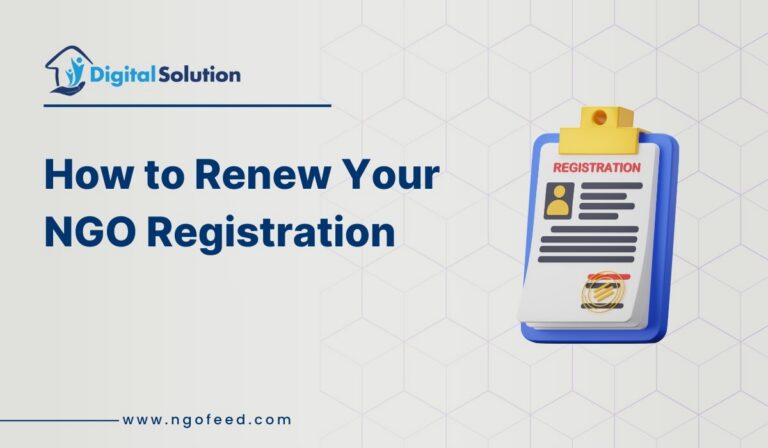
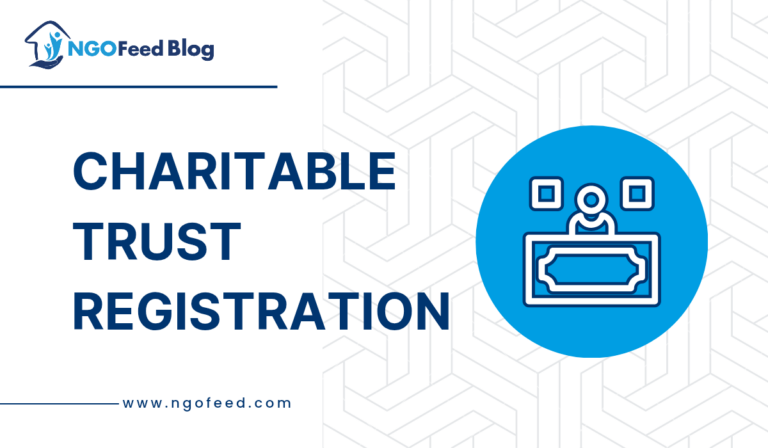

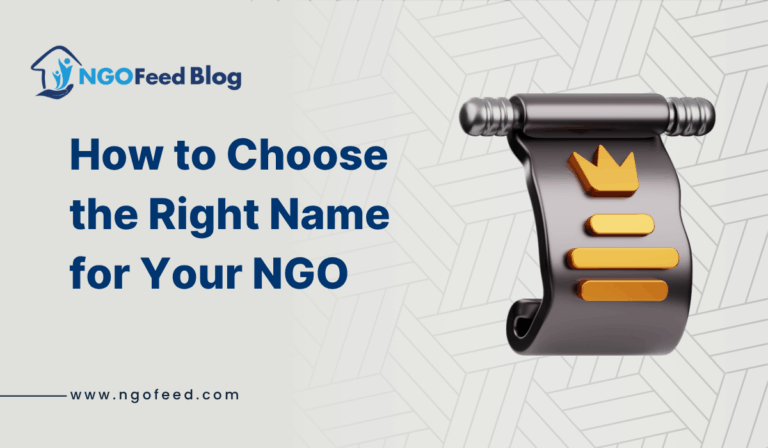
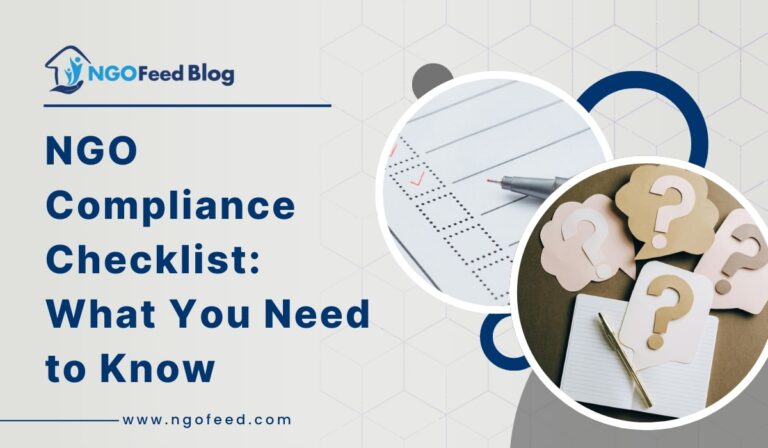
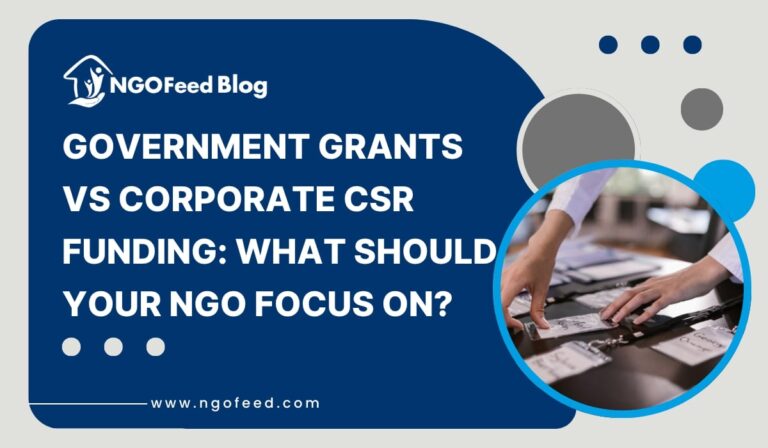

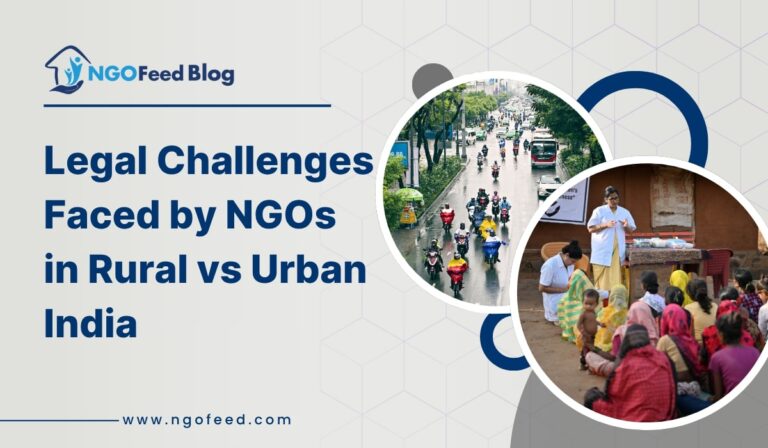
ಈಗಾಗಲೇ ನಾನು ಒಟ್ಟು ಮೂರು ಜನ ಸೇರಿ ಒಂದು ngo ನೋoದವಣೆಯಾಗಿದೆ (2008
ರಲ್ಲಿ) ಪಾನ್ ಮಾಡಿಸಿಲ್ಲ ಬ್ಯಾಂಕ್ ಖಾತೆ ತೆರೆದಿಲ್ಲ ಈಗ ನಾನು ಒಬ್ಬನೇ ಇದ್ದೇನೆ ಇದನ್ನು ಮುಂದುವರಿಸಬೇಕು ಸಲಹೆ ನೀಡಿರಿ
Please comment on your queries in English.
Sir a m a man from TANZANIA aged 65 needing to set up a private ngo to work in my country
That’s Great; All the best; you have to check the NGO registration process according to your country’s norms.
Me un mahilao kE liye kam karna chahata hu jo kam bahut karana chahati hai lekin ghar se nahi nikal pati kupya mujhe marg darshan karaye aur meri madad kare
Aap NGOs ko join kr sakte hai jo women empowerment pr work kr rhi hai.
I am glad today I saw an NGO member from UNICEF to our school I didn’t get time to meet him but can I also get a person or sponsor’s to support me
That’s great, Thanks for the valuable comment.
Eager to register a sec 8co(non profit org.). Pl, send me details about. Cost of online registration,rqd documents of members (maximum numbers)?
Read the article for Section 8 registration: https://ngofeed.com/blog/how-to-registered-section-8-company/